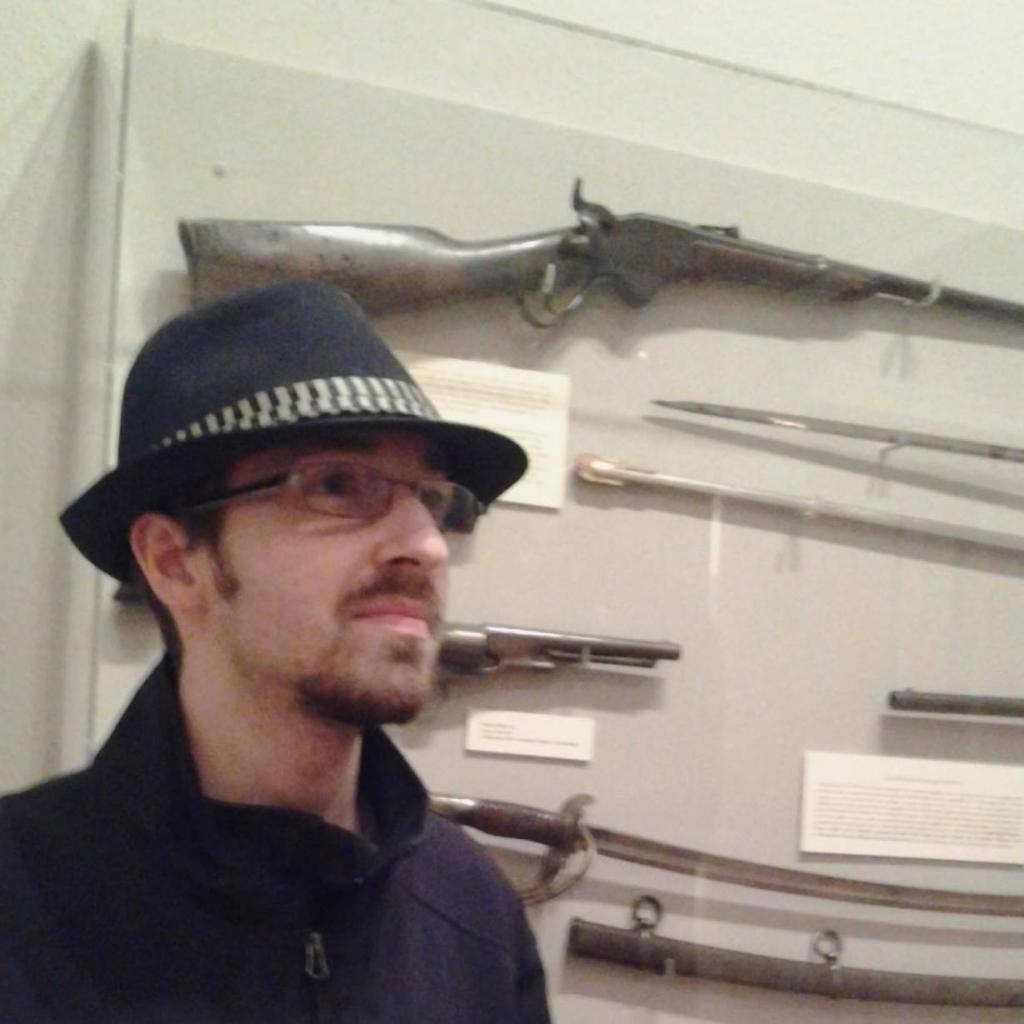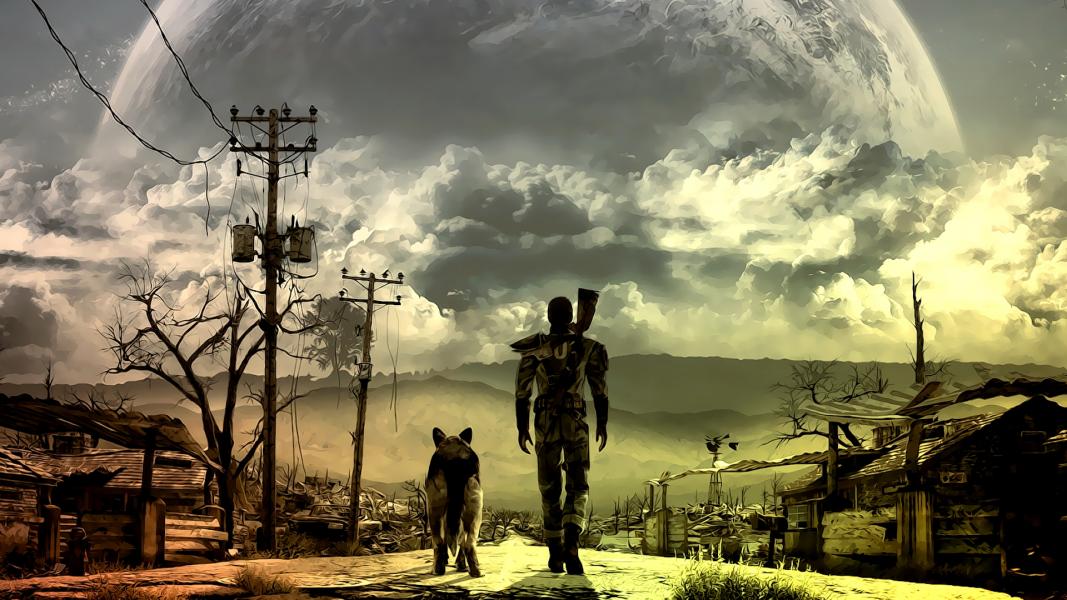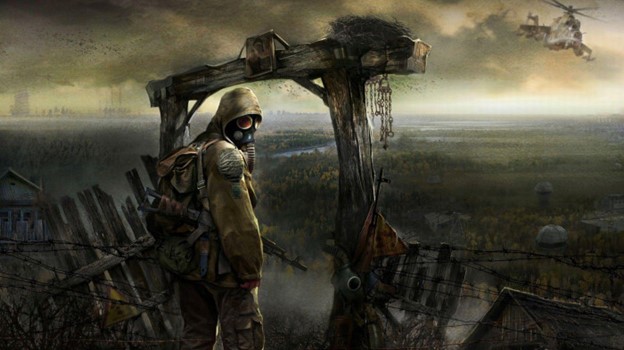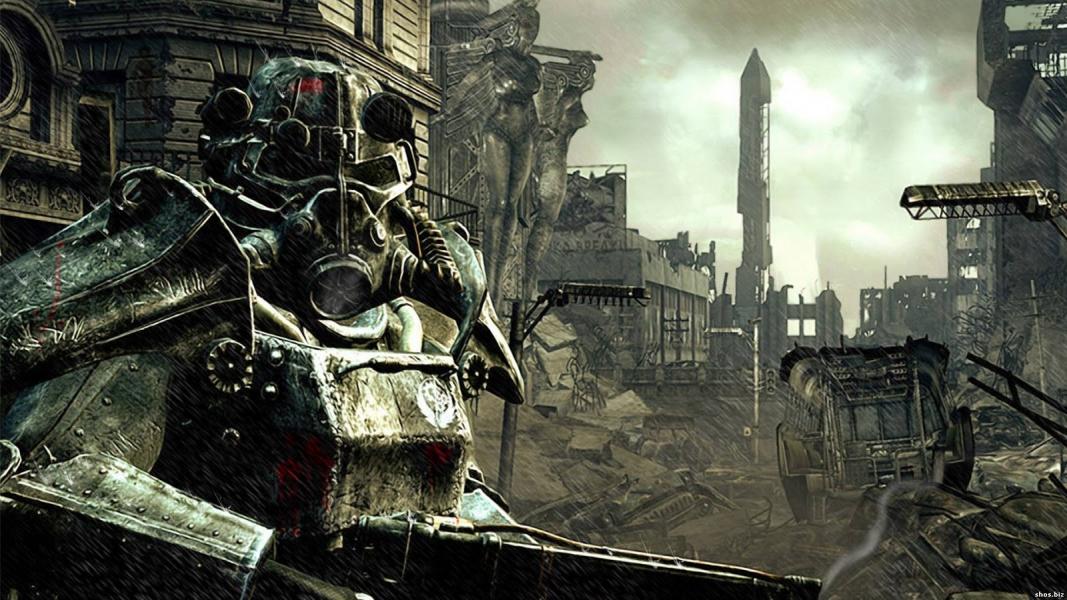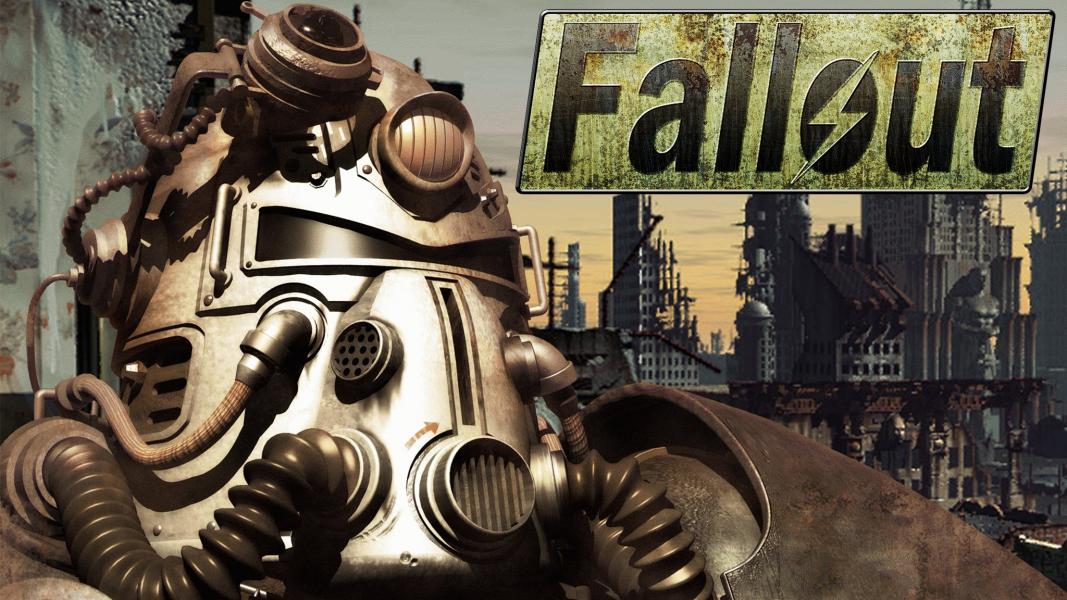
Welcome to the vault of the future!
Since its first release in 1997, the Fallout series has become one of the most beloved and well-known role-playing games in the industry. Of course since then the series has went through several major changes – affectively making it much different now than to when it started. Let’s count down the games and see how each installment evolved the series in new directions.
So grab a Nuka Cola and let’s get started with the list.
Fallout (1997)
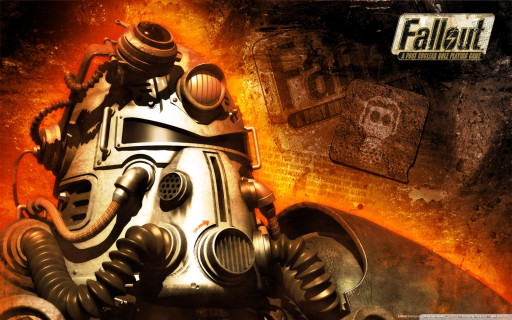
He’s here for your technology.
Programmed by Tim Cain, designed by Chris Taylor, and presented by Brain Fargo – the original Fallout was a big success and became one of Interplay’s most well-known games. The title was originally envisioned as a spiritual successor to Interplay’s Wasteland using the GURPS system. However, due to licensing issues the GURPS mechanic didn’t make it into the final game, instead being replaced with SPECIAL.
Fallout is an isometric turn-based role-playing game set in a post-apocalyptic, retro-futuristic western setting. The original Fallout takes place over most of California, with you taking the role of a Vault 13 resident sent on a quest to find a new water chip before all the water in your vault completely runs out. As the story progress the plot becomes more complex and in the end you must save the vault from being invaded by the Master’s super mutant army.
During the journey you will encounter several factions and depending on your interactions with them, they can have different fates by the end. But no matter how the journey goes, you are exiled from Vault 13 and sentenced to live in the wasteland.
Fallout 2 (1998)
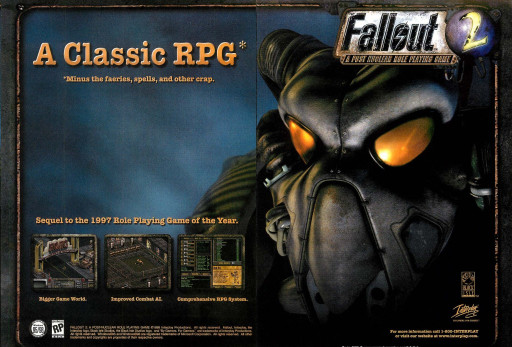
It is the Enclave’s duty to restore Uncle Sam.
The first sequel to Fallout was released only a year later and expanded upon the original with an updated interface and many more factions, areas, and side activities to do. Unfortunately, the expanded scope combined with the one year development cycle caused problems for the game – there were tons of bugs and a lot of content had to be cut out to meet the deadline. Despite the technical issues, Fallout 2 did extremely well and many view it as the best of the classic titles.
There is now a restored content mod by Killap that brings back most of the stuff that was previously cut out from the released version. Be sure to get the mod if you wish to have the complete Fallout 2 experience.
Fallout: Tactics (2001)

He's not a person you don't want to steel bottle caps from.
Tactics was the first spin-off title of the series and shifted the focus from role-playing, character interaction, and exploring the world to tactical combat – with some role-playing elements mixed in. This change of direction was controversial but regardless the title still did relatively well.
Fallout: Tactics had a few continuity inconsistencies and as a result the game became only part-canon following Bethesda’s ownership of the series.
Fallout: Brotherhood of Steel (2004)

Move along, nothing to see here.
Brotherhood of Steel is the weakest Fallout installment and also the last game in the series by Interplay. It’s a shame the original owners had to go out on such a low note, especially with how well they developed the original. Shortly after the game was released Bethesda bought full ownership of the series and from then on the games now went to their hands.
One of the major flaws with the game is its out of place aesthetic from the rest of the series. Fallout is always meant to have a ‘50s vibe to it but Brotherhood went for a modernized direction and included several metal and hard-rock songs. Notably, it’s also the only game to series to not have Ron Perlman as the narrator – instead he is replaced by Tony Jay (voice of the Lieutenant from the original Fallout) for this title.
Since the Bethesda transfer, Brotherhood of Steel has been removed from official continuity due to extremely poor feedback of the title.
Fallout 3 (2008)

God bless America.
Fallout 3 is a major turning point for the series as it’s not only Bethesda’s first developed game, but it also moved the series away from the isometric view-point and turn-based combat of the originals to first-person camera and real-time combat – with some strategic elements included by the VATS system. In many ways, Fallout 3 is the big revival of the series that brought the series to a new higher level of popularity.
In Fallout 3, you played as an escaped Vault 101 resident in search of your dad. During your search, you explored the wasteland and learned much of the important events surrounding a conflict with the Enclave.
The explosive success of Fallout 3 brought the series back on the charts after many years since its previous glory days at the time. If it wasn’t for Fallout 3’s success, it is unknown how the series would have turned out now.
Fallout: New Vegas (2010)

Welcome to Sin City.
Like what Fallout 2 did for the original Fallout, Fallout: New Vegas improved and expanded upon Fallout 3 with an updated interface and lots of cool new features. Unfortunately, also like Fallout 2, the game had a short development cycle which resulted in the title having tons of bugs and lots of content cut. But again, like Fallout 2, the title did extremely well despite its flaws.
The original New Vegas game and its DLC add-ons is well known for including elements of Black Isle’s original version of Fallout 3, commonly known as Van Buren. Some parts taken from Van Buren included the NCR-Brotherhood War, Caesar’s Legion, Hoover Dam, the Big Empty, and Ulysses.
New Vegas also brought in several elements back from the original two titles – such as the western setting, character traits, faction reputation, and Mark Morgan’s ambient music. In some ways New Vegas overall is a partial return to form of the first two titles.
Fallout 4 (2015)
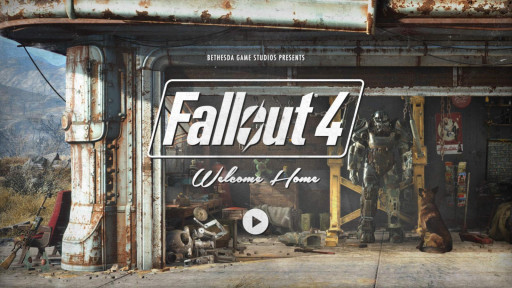
It’s good to be back.
Now here we are with the newest Fallout title on the way. From the gameplay trailer, we saw it is clear Fallout 4 will be similar in many ways to Fallout 3, but with a much bigger scope and tons of new features – including a voiced protagonist and settlement building.
The series has come a long way since its first starting point back in September of ’97. Whatever the future has in store for the series, I’m excited to see what it brings – and I think it’s going to be really amazing.
